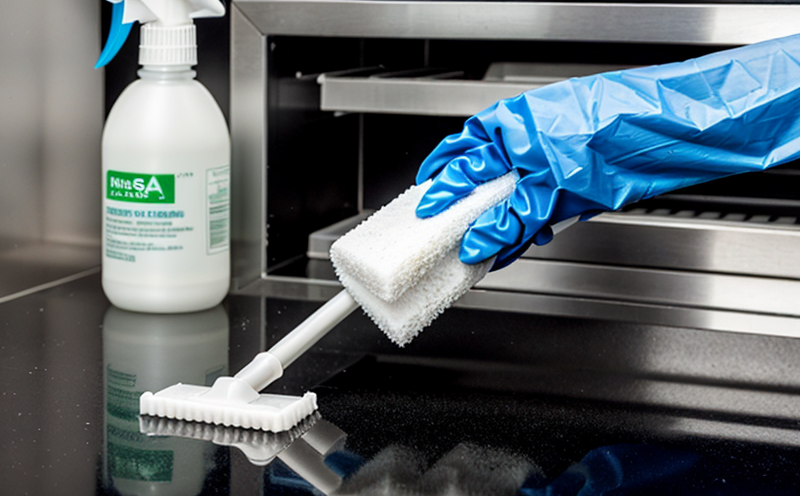ASTM E2149 Antimicrobial Plastics Testing under Dynamic Contact
The ASTM E2149 standard addresses the testing of antimicrobial effectiveness on plastic materials used in cleaning and hygiene applications. This service involves evaluating how well plastics can inhibit microbial growth, particularly when subjected to dynamic contact during use. Understanding this is critical for products like medical devices, food-contact surfaces, and consumer goods that are frequently exposed to contaminants.
The test simulates real-world conditions where plastic materials come into frequent contact with a variety of microorganisms. The specimen is exposed to an inoculum of specified organisms under controlled humidity and temperature conditions. The effectiveness of the antimicrobial agent is then determined by counting viable bacteria or fungi after a set period of exposure.
Dynamic contact testing ensures that the material's performance does not depend solely on static adsorption but also on the active transfer mechanism that occurs during use. This method better reflects how antimicrobial plastics are expected to perform in actual applications, enhancing its predictive value for product safety and efficacy.
The ASTM E2149 test provides a comprehensive evaluation of the antimicrobial properties of plastic materials used in cleaning and hygiene applications. It is particularly relevant for materials that come into frequent contact with microorganisms, such as medical devices, food-contact surfaces, and consumer goods designed to maintain hygienic conditions.
This service is essential for manufacturers who need to ensure their products comply with regulatory requirements and meet stringent quality standards. By testing the material under dynamic contact conditions, we can provide a more accurate assessment of its antimicrobial efficacy compared to static tests.
Applied Standards
| Standard | Description |
|---|---|
| ASTM E2149-18 | Standard Practice for Determining Antimicrobial Activity of Plastics Using a Dynamic Contact Exposure Method. |
The ASTM E2149 standard provides detailed protocols for testing the antimicrobial activity of plastic materials using a dynamic contact exposure method. This involves exposing the specimen to an inoculum of specified microorganisms under controlled environmental conditions, simulating real-world usage scenarios. The standard ensures that all tests are conducted in a consistent and reproducible manner.
The test is designed to evaluate how well the antimicrobial agent within the plastic material inhibits microbial growth during dynamic contact with contaminants. This method provides a more realistic assessment of the material's performance compared to static tests, which do not account for the active transfer mechanism that occurs during use.
Quality and Reliability Assurance
- Compliance with ASTM E2149 ensures product safety and efficacy in cleaning and hygiene applications.
- Data reliability is ensured through rigorous specimen preparation, controlled environmental conditions, and consistent testing methods.
- Our laboratory uses advanced instrumentation to provide accurate and precise results.
The quality and reliability of the test results are paramount for manufacturers who need to ensure their products meet regulatory requirements and maintain high standards of hygiene. By adhering to ASTM E2149, we can provide consistent and reliable data that reflects real-world conditions accurately.
Data reliability is ensured through rigorous specimen preparation, controlled environmental conditions, and consistent testing methods. We use advanced instrumentation to provide accurate and precise results, ensuring the highest level of quality assurance for our clients.
Use Cases and Application Examples
The ASTM E2149 test is particularly useful in evaluating antimicrobial properties on plastic materials used in cleaning and hygiene applications. Some key use cases include:
- Medical devices like catheters, surgical instruments, and wound dressings.
- Food-contact surfaces such as cutting boards, utensils, and packaging materials.
- Consumer goods designed to maintain hygienic conditions, including toys, electronics, and furniture.
The test simulates real-world contact scenarios where the plastic material is exposed to microorganisms. For medical devices, this ensures that the antimicrobial properties are effective during use. In food-contact surfaces, it guarantees hygiene standards are met even when in frequent contact with contaminants.
For consumer goods, testing under dynamic contact conditions helps manufacturers ensure their products maintain hygienic conditions throughout their lifecycle. This service is essential for maintaining product safety and efficacy in cleaning and hygiene applications.





